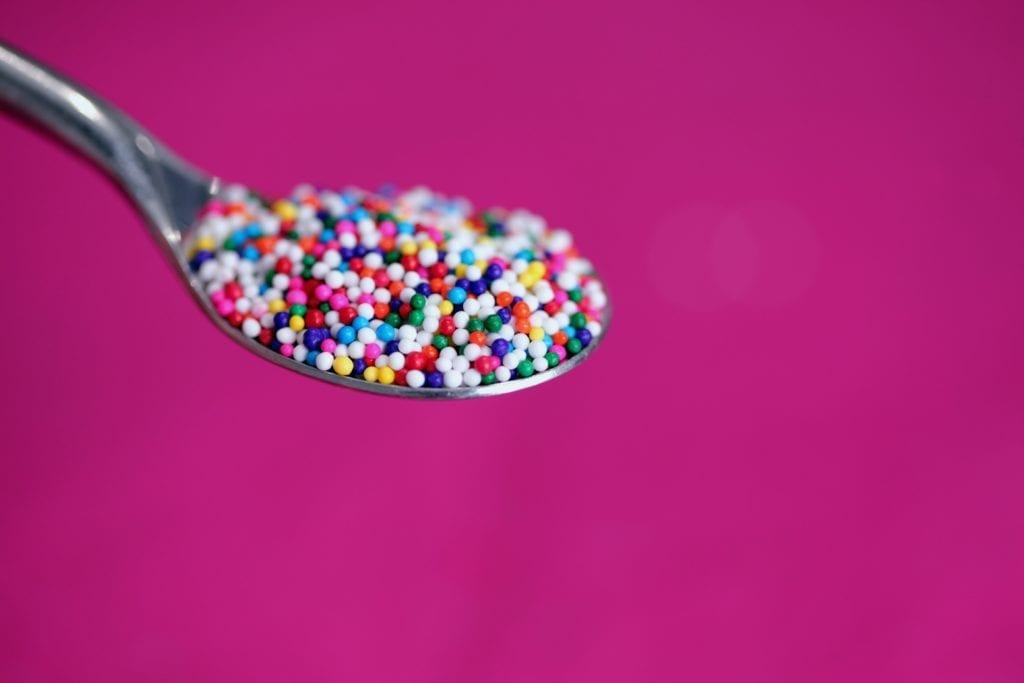BALANCE YOUR BLOOD SUGAR, BABY

If you want stable energy throughout the day, you need to be handling your blood sugar well.
Unbalance blood sugar is one of the main reasons for that afternoon crash and those terrible things you say when you are hangry. It is also a driver for HPA-Axis dysfunction (i.e. adrenal fatigue), weight gain, and metabolic dysfunction.
Blood sugar issues are an epidemic. No wonder considering the average American consumes 160lbs of sugar per year. Yes, you read that right! Crazy. We only refined sugar production in the 1600’s and we were consuming about 4lbs of sugar per person per year back then. We are putting our bodies in blood sugar emergencies everyday but we can get off the roller-coaster and regain that stable, calm energy we are meant to have.
“Unbalance blood sugar is one of the main reasons for that afternoon crash and those terrible things you say when you are hangry.”
Blood Sugar 101
Blood sugar is essential to live, it supplies our cells with energy, but we need it in a very specific range within the blood. When we eat a meal with carbohydrates in it, our blood glucose (sugar) rises. This in turns tells our pancreas to secrete insulin, which helps shuttle glucose into cells where it can be used later for fuel.
This process has worked fine for our body as most of our existence as humans we were hunter gather and had relatively little access to carbohydrates, especially not processed high carb foods with little or no fiber to slow the release of glucose into the blood.
When you eat a high carb meal, especially refined carbs with little fiber or fat to slow the release of glucose into the blood, blood sugar spikes dramatically. Our pancreas freaks out and sends out a bunch of insulin because it knows that too much glucose in the blood is toxic.
Because it sent an emergency load of insulin to deal with the crazy amount of glucose, it overshot the mark and a few hours later blood sugar drops dramatically leading to hypoglycemia, or low blood sugar. Your body also sees low blood sugar as an emergency and sends our cortisol from your adrenals to help raise blood sugar. This can set us up for adrenal dysfunction as we are constantly using cortisol to help balance blood sugar.
This sets you up for a blood sugar roller coaster with elevated and ultra-low levels of blood glucose.

Are you on a blood sugar roller coaster?
Does any of this sound familiar?
- Feeling hangry before meals
- Feeling shaky and light headed if you missed a meal
- Have to eat every few hours
- Find it difficult to lose weight
- Can’t concentrate and feel anxious
- Crave sugar and carbs
- Wake up a few hours after falling asleep and have trouble getting back to sleep
- Crave coffee or sugar in the afternoon
- Binge or uncontrolled eating
- Frequent thirst and urination
These are all signs of blood sugar imbalance. Not only does this suck to feel this way and can mess with your energy, mood, and appetite, but it also leads to more nasty consequences if left unchecked. This is especially taxing on our poor adrenals when we overuse cortisol to try to regulate blood sugar. This can lead to HPA axis dysfunction, hormone imbalance, and sleep problems.
Hypoglycemia (low blood sugar because of blood sugar swings) and Hyperglcemia (Diabetes II) are two sides of the same coin – metabolic dysfunction. High blood sugar levels create inflammation in the body and can damage blood vessels and nerves. Also, when your insulin levels are high, your body cannot burn fat for fuel and stores extra glucose as triglycerides (fat). You are staying trapped in the sugar burner mode.
You want to have metabolic flexibility and be able to efficiently use fat, protein, and carbs for fuel. In your metabolic fire, carbs are like kindling (quick burning) and fats are like logs (slow burning).
Running on sugar is inefficient and unbalanced.

How to Regulate Blood Sugar
- Ditch the processed foods.
Our bodies were not designed to handle high carb meals. It is an emergency for our body.
- Choose Slow/low carbs.
Whole food complex carbs like sweet potatoes and winter squashes have many health benefits and are the slowest released. Choose low glycemic carbs.
- Don’t eat carbs alone.
That will spike your blood sugar the most. Make sure you have some healthy fats with your carbs to slow the release of glucose into the blood and control insulin surges.
- Start the day with fat and protein.
This will set you up with long lasting fuel for the day. The best time to eat carbs is at night, about 5 hours before bed because it can help raise serotonin levels.
- Eat smaller meals more frequently.
You want to eventually move into eating less frequently but if you have imbalanced blood sugar you need to eat meals with fat and protein more frequently until your blood sugar issues are resolved.
- Look out for hidden sugar.
It is in almost all processed foods – ketchup, salad dressings, and sauces. Better yet, skip the processed foods and eat real, whole foods as close to their natural state as possible.
This is part of the Foundations of Awesome Health series.
